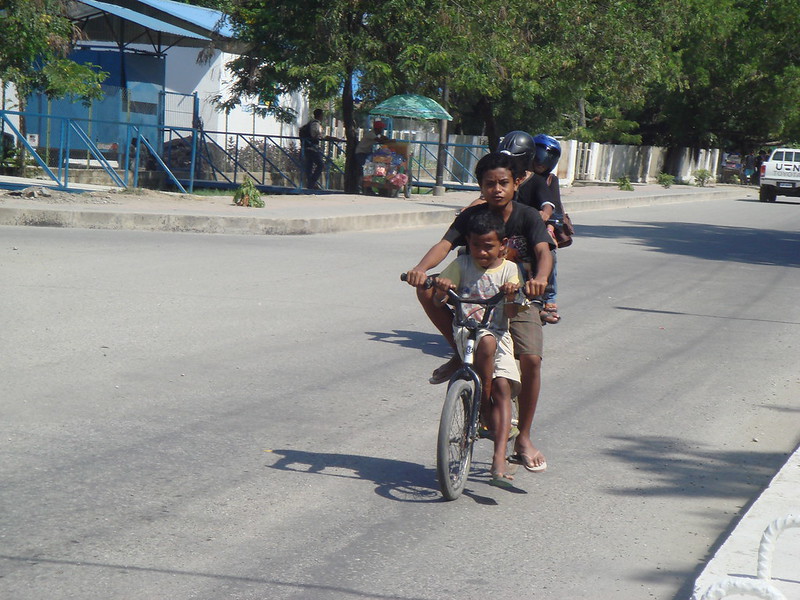BEWARE OF FALLING COCONUTS!
On 9 March, this sign can be found in a parking area not far from the main beach road in Dili, the capital of Timor-Leste. Beach road leads from the city center to the recreation spots of Cristo Rei (named after a giant Jesus statue on a hill that imitates the famous statue of Rio in Brazil) along the coast. It is the end of a very long rainy season that has soaked many parts of this island between Australia and Indonesia, and made travel difficult on dilapidated roads.
Dili is something of a boom town these days. An army of UN police, hundreds of foreign advisers from Portugal and Australia, and NGO workers are peacefully occupying the country of little more than one million. Timor-Leste is still scarred from two decades of Indonesian rule and is making baby steps since its 1999 referendum and independence declaration in 2002.
Back on beach road, its first stretch goes past Casa Europa where the European Commission Delegation sits in a beautifully restored low-slung colonial building which once housed military police and a prison. The road then turns toward a memorial square of Portuguese saints and seafarers. On the other side is the self-styled original Aussie bar that offers Sunday roasts and plenty of beer. Framing the seashore are palm trees and the remnants of a colonial park as well as tiny pill box bunkers from World War Two that blend quietly into the scenery.
The main attraction here are the fishmongers who sell just about every kind of fish that is caught in the lagoon by small local outrigger canoes: fish come in all sizes and colors, there is also squid and lobster on good days. The market is an improvised affair, it has no real building or price tags, only wooden stalls by the road and fish hanging from surrounding trees. Some customers are eager to buy so it is not uncommon to have fish is simply tied to the car’s side mirror to provide cooling along the way home. Prices are not exactly cheap with over 10 U.S. Dollar a good-sized fish but the spot is very popular and causes endless traffic jams at certain times of day. Whereas streets were fairly empty two years ago, they are now clogged with mopeds and cars, including those owned by the Government marked “carreta de estado” in the official Portuguese language. Add to this the numerous UN vehicles (police and civilian) for a heady mix of driving styles and Timorese kids darting in between when the schools release them in droves onto the street.
It is always hot in Timor-Leste and Dili has the worst climate, far away from the mountainous interior where it is cooler and the air is still very clean. But the nation’s hot periods seem over now and stability has returned, at least on the surface. Peace was bought with much public spending from the oil & gas income, shared with Australia that keeps a watchful eye on this island just an hour’s flight away from the neighbor’s northern territories. The big coconut is going to drop in a decade from now when the known oil wells will dry up. Until then, enjoy the party and watch where you park your car in Dili.
